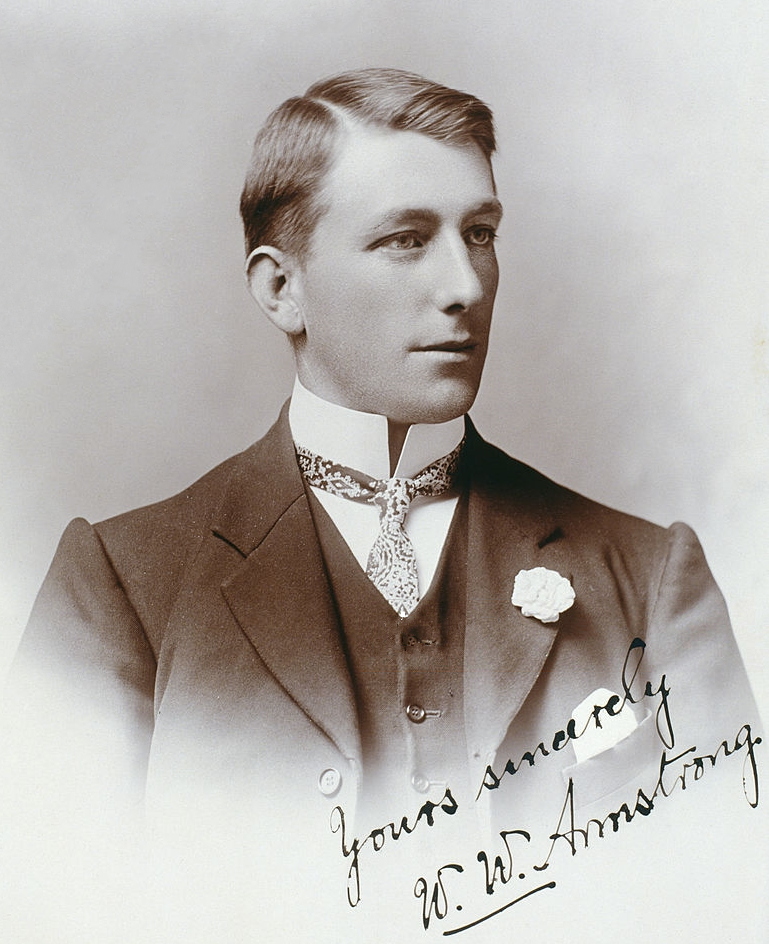Warwick Armstrong
 Warwick Windridge Armstrong (22 May 1879 – 13 July 1947) was an Australian cricketer who played 50 Test matches between 1902 and 1921. An all-rounder, he captained Australia in ten Test matches between 1920 and 1921, and was undefeated, winning eight Tests and drawing two. Armstrong was captain of the 1920–21 Australian team which defeated the touring English 5–0: one of only three teams to win an Ashes series in a whitewash. In a Test career interrupted by the First World War, he scored 2,863 runs at an average of 38.68, including six centuries, and took 87 wickets. He was inducted into the Australian Cricket Hall of Fame in 2000.
Warwick Windridge Armstrong (22 May 1879 – 13 July 1947) was an Australian cricketer who played 50 Test matches between 1902 and 1921. An all-rounder, he captained Australia in ten Test matches between 1920 and 1921, and was undefeated, winning eight Tests and drawing two. Armstrong was captain of the 1920–21 Australian team which defeated the touring English 5–0: one of only three teams to win an Ashes series in a whitewash. In a Test career interrupted by the First World War, he scored 2,863 runs at an average of 38.68, including six centuries, and took 87 wickets. He was inducted into the Australian Cricket Hall of Fame in 2000.Armstrong was a large man (6 foot 3 inches – 1.9 m tall and 21 stone – 133 kg or 294 lb) and was known as the "Big Ship". He was not a stylish batsman but his strokeplay was effective, with a sound defence and temperament. He bowled leg spin with a gentle action and while not a big turner of the ball, he relied on accuracy to dismiss opponents. He made his Test debut in 1902 against England at the Melbourne Cricket Ground (MCG) and was selected to tour England later that year where he was named as one of the Wisden Cricketers of the Year. That was the first of four tours of England. He was involved in several altercations with cricket administrators and was one of the "Big Six" who boycotted the 1912 Triangular Tournament in England after a dispute with the Australian Board of Control for International Cricket.
A talented Australian rules footballer, Armstrong briefly represented South Melbourne in the Victorian Football League before playing Test cricket. For much of his cricket career, he was employed as a pavilion clerk by the Melbourne Cricket Club, who allowed him time off to play cricket. Following his retirement from Test and first-class cricket after the successful 1921 tour of England, Armstrong took a position as an agent for a scotch whisky distributor and wrote on cricket for the Sydney ''Evening News''. Provided by Wikipedia
